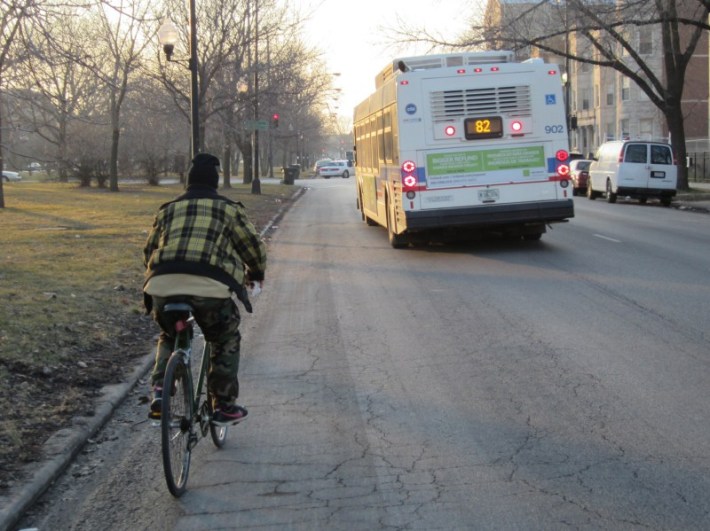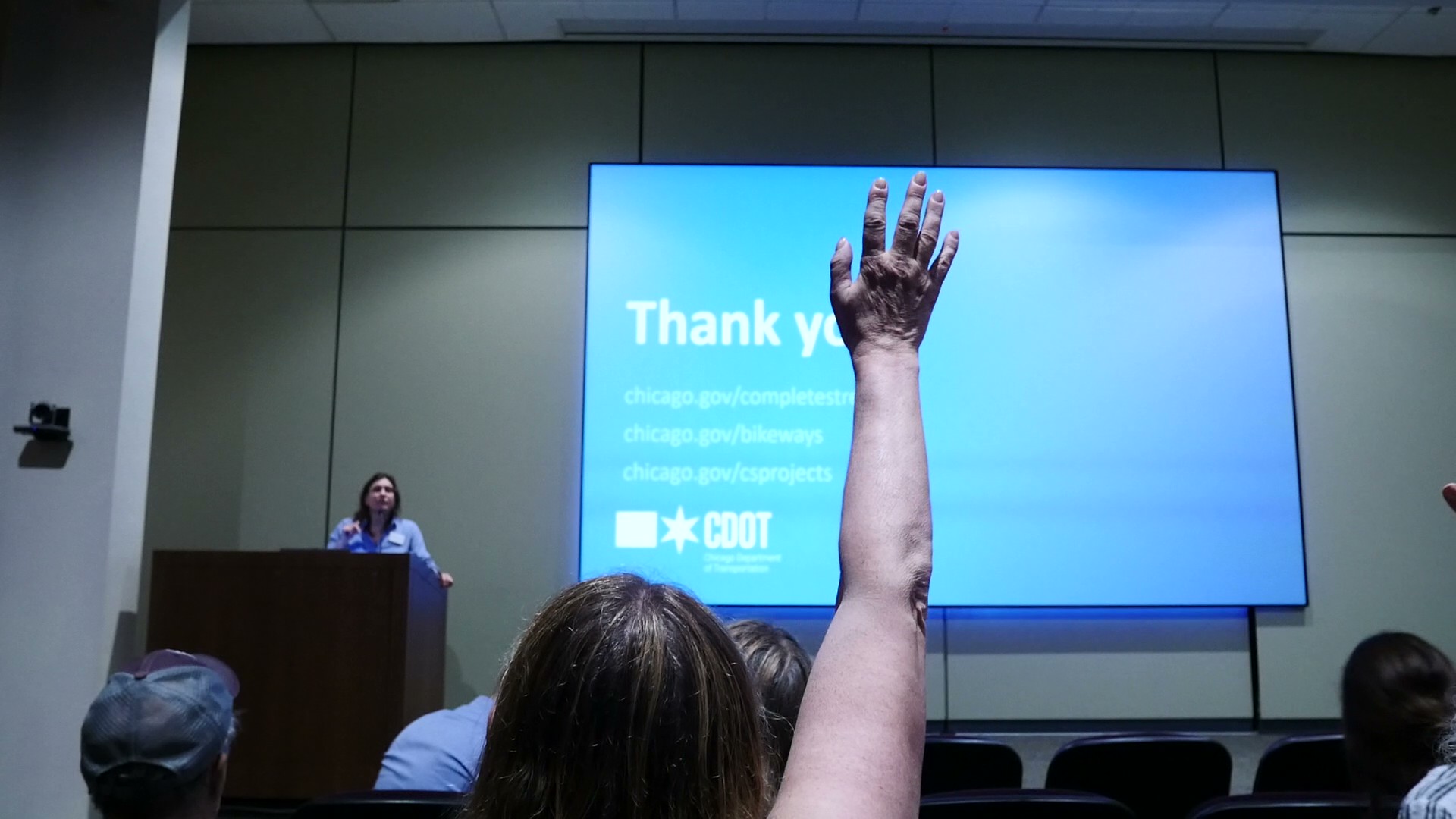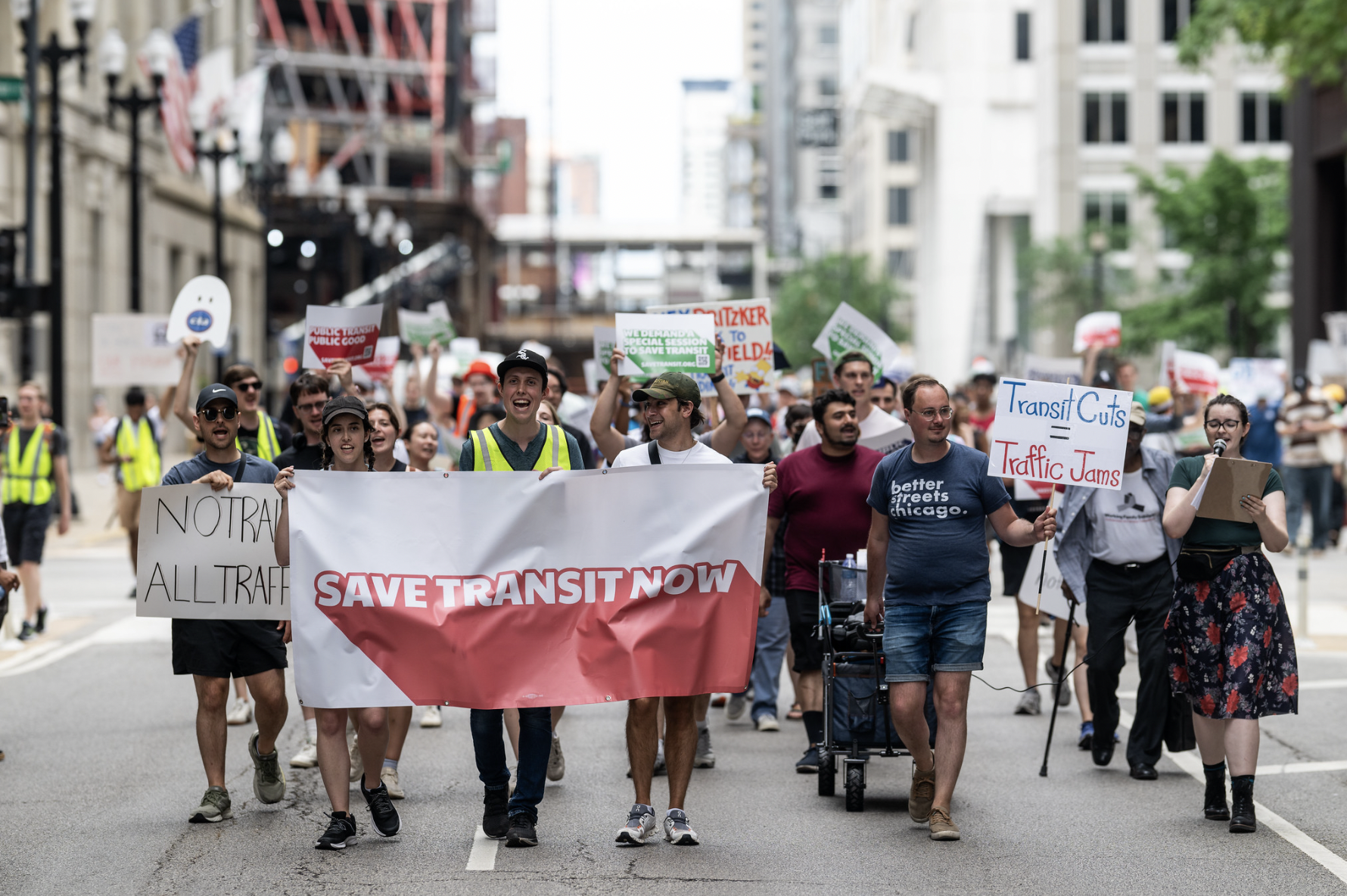Last night WTTW’s “Chicago Tonight” show hosted a discussion of tensions between the Chicago Police Department and neighborhoods of color in the wake of officer-involved shootings, recent protests shutting down major highways, and police using a “bait truck” to entrap Englewood residents, looking at whether it’s possible to repair CPD community relations. Of the guests was Glen Brooks, the department’s director of public engagement.
In June, in response to investigations by the Tribune’s Mary Wisniewski that uncovered massive discrepancies in the number of bike tickets written in some Black and Latino areas versus majority-white neighborhoods, Brooks talked about the issue at a Mayor’s Bicycle Advisory Council meeting. He said that a CPD analysis of 3,300-plus sidewalk riding tickets indicated that the exponentially higher number of citations written in some communities of color was due to police using traffic enforcement as a violence-prevention strategy, because the stops facilitate searches for illegal guns and other contraband. Brooks said that he doesn’t feel this practice qualifies as racial profiling, and indicated that the CPD doesn’t plan to stop it.
“Chicago Tonight” host Carol Marin asked Brooks about the bike ticketing issue, which she said seems to be a factor in worsening CPD community relations. Brooks reiterated that he doesn’t believe that the department’s enforcement policy, in which bike laws are heavily enforced in some communities of color, but not in majority-white ones, is unfair. (For example, Wisniewski found that 397 bike tickets were written in North Lawndale last year, while only five were issued in Lincoln Park.) On the contrary, he argued, it’s a sensible approach to fighting violent crime.

Brooks was open about the fact the CPD is more likely to ticket for both bike and motor vehicle infractions in communities of color than white neighborhoods. “When we have communities experiencing levels of violence, we do increase traffic enforcement,” he said. “Part of that includes bicycles.”
But, once again, he argued that there's nothing inequitable about that. “It isn’t a matter of fact that we are targeting people of color for bicycling,” he said. “We are trying to do everything humanly possible to curtail the violence.”
Brooks went to so far as to assert that zero-tolerance bike enforcement is justified in Black and Brown areas because the victims of violence, as well as the perpetrators, are sometimes people on bikes. “Just this weekend we had someone who was shot who was on a bicycle, and we had the offenders reported to us leaving on bicycles. So this isn’t a matter of targeting bicyclists, this is a matter of targeting violence.”
Setting aside the question of whether it’s fair that people riding bikes in North Lawndale were about 80 times more likely to be issued a ticket than their Lincoln Park counterparts for the same behavior, criminal justice reform and civil rights advocates have argued that the CPD’s cycling enforcement practices are counterproductive to reducing violence. “When people feel like they’re being targeted in their neighborhoods, it leaves a negative impression of the police,” ACLU of Illinois' Karen Sheley recently told me. “When you’re [generally] law-abiding, it’s really offensive to be stopped for minor ticky-tacky violations and basically be treated like a criminal.”
Sheley noted that the 2017 U.S. Department of Justice investigation of the CPD, as well as social science researchers, have reported this kind of “broken windows”-style enforcement has had a negative effect on the department's community relations and crime solving abilities, because it makes residents less likely to share information with officers.
Watch the entire "Chicago Tonight" segment here. The bike discussion begins at 4:30.







